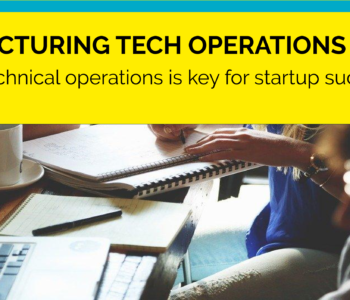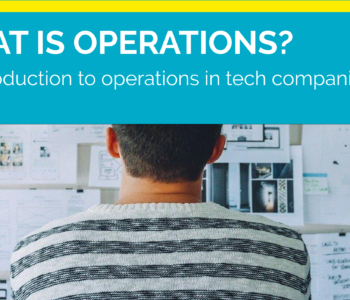 Vision to Value
Vision to Value
What is the Tech COO Role?
The Chief Operating Officer or COO role is one as much defined by ambiguity as a list of tasks and role responsibilities. As a result, many tech startups wait to implement the role or simply avoid having it, often until far too-late in the game. And, ambiguity is understandable. While it’s easy to define what a chief marketing officer is responsible for or a chief technology officer, defining “Operations” is nowhere near so simple. The Tech COO and her role are defined by the organization, their relationship with the CEO, and the size of the organization.
This is especially crucial in tech organizations, where the role of a COO likely merges business operations (strategy, business growth, etc.) with tech operations.
A Partner for the CEO
The CEO is in charge of creating and directing vision and strategy. The COO should be her partner, directly working to act on and realize that vision and strategy. If the CEO is “what” the COO is “how”.
In many ways, this means that the ideal COO for your organization is one whose skills and personality complement that of the CEO. So, if the CEO has ideas but no practical way to scale them, the COO would step in to scale. Or, if the CEO has experience with operations, the COO might operate as a business partner, sharing work and ideas in an early startup.
What does the COO do in Tech Organizations?
The COO role is responsible for creating operations and structure supporting the day-to-day delivery of your organization’s products and services. That typically means architecture, business processes, product development, support, team structure, etc. Tech organizations, operations enable the sustainable creation and development of a software product, meaning that operations is about structure, people management, customer support, product development, product management, and support. Here, it’s crucial that organizations see the entire organization as a product, which the COO must oversee.
A tech COO is a strategist, an executor, and, to an extent, a jack of all trades. He should expect to take charge of operations and delivery, to work in interconnected roles with finance, sales, account management, marketing, PR, HR, and IT, and to realize the CEOs vision and strategy. In startups, the COO will often fill numerous roles, especially that of CTO, but this will heavily depend on the organization.
Operations is an important tool for any startup. It provides the structure to deliver software in a timely manner and to a consistent standard of quality, even as you scale. It enables organizations to grow and develop new ideas and services.
The Vision to Value Framework describes operations from a technical perspective, helping COOs design operations around the needs of their organization and its software product. With a high-level view of operations in tech companies, Vision to Value works to help COOs create and maintain a structure to support scaling tech organizations.








3 COMMENTS
wonderful points altogether, you just gained a new reader. Moving into a role as a COO is such a challenge after operating as a co-founder and I’ve been lost
This is really helpful. I’m looking forward to seeing what’s in the book
What’s the difference here between a COO and a CTO? Doesn’t this overlap the roles?